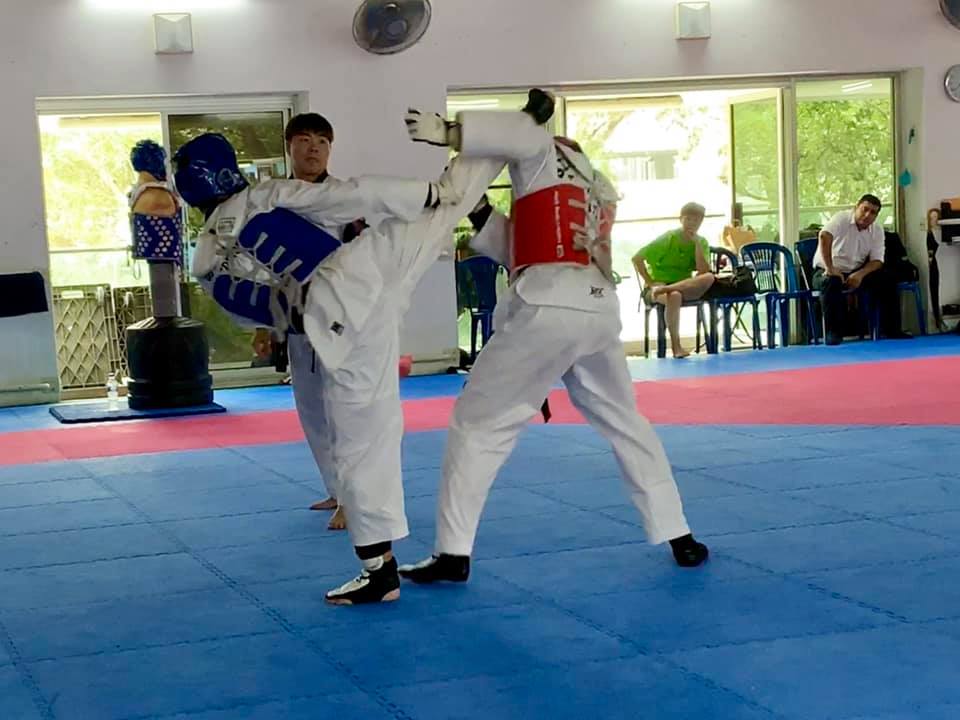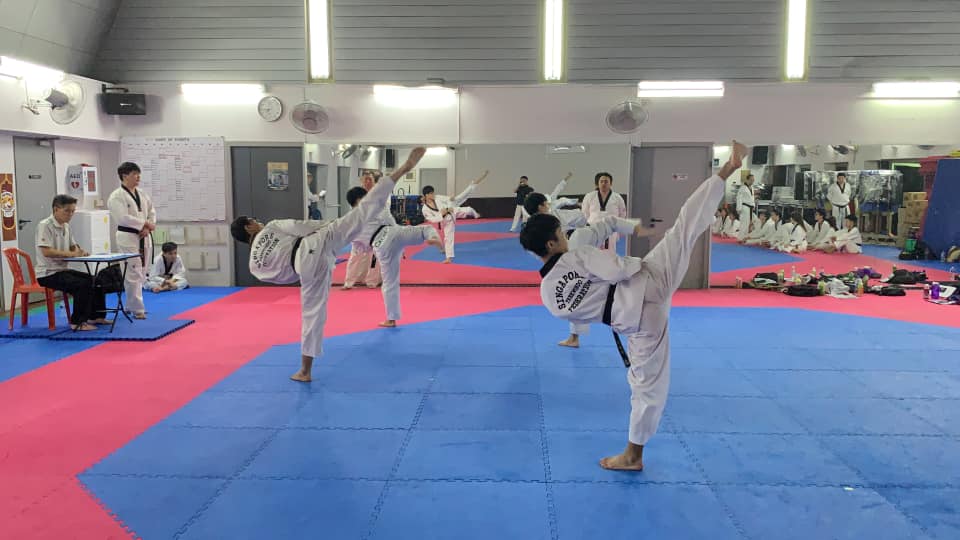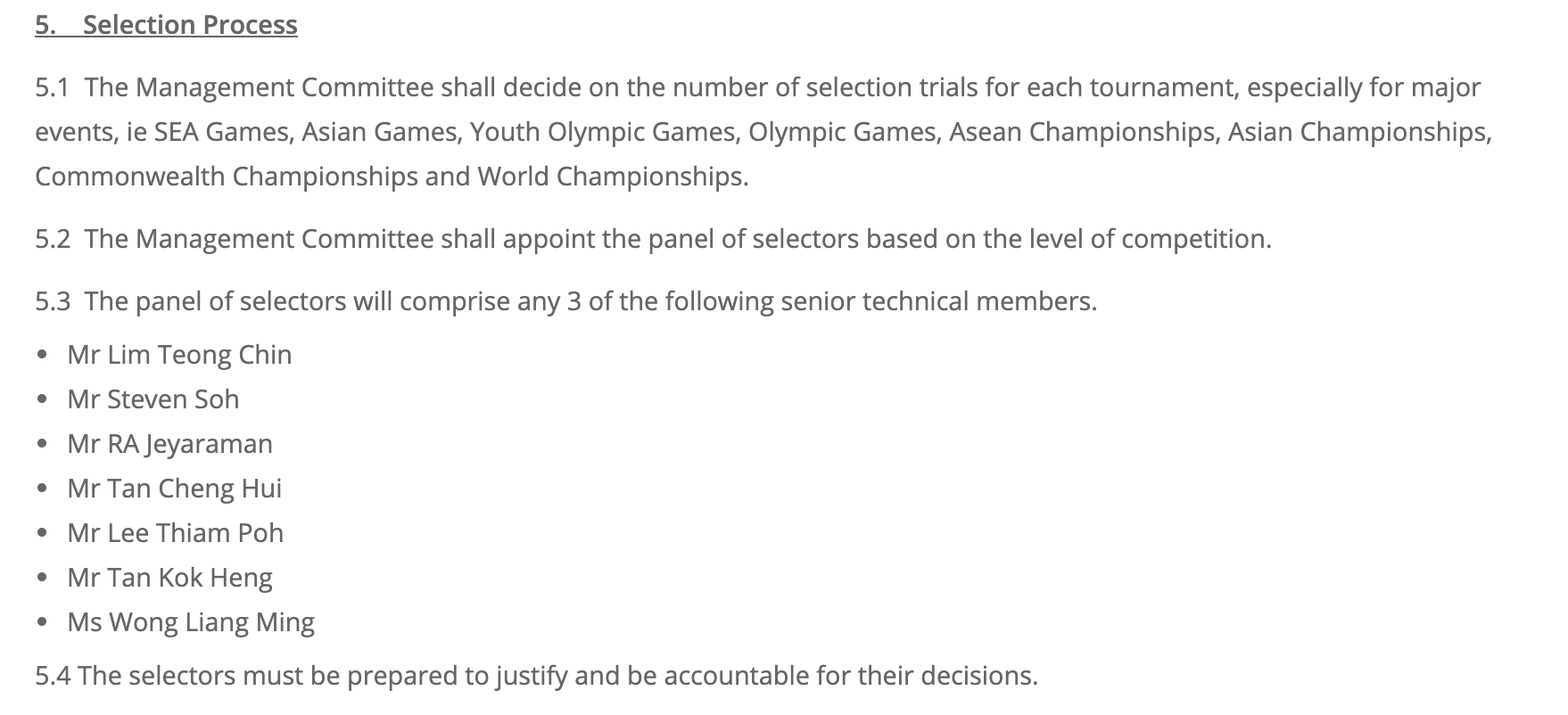He represented Singapore at the SEA Games in 2015 — the highlight of what was at the time a burgeoning taekwondo career — before a startlingly steep comedown saw him leave the national squad just two years later.
That's the story of one 24-year-old former athlete who walked away from Singapore's national taekwondo squad, sharing his disappointment with what he perceives to be systemic issues within the Singapore Taekwondo Federation (STF).
Since our first article published on national taekwondo athlete Ng Ming Wei and his struggle to represent Singapore at the Olympics, Mothership has spoken to eight other national athletes — including some current members of the national squad — about their experiences training under the auspices of the STF.
By and large, the athletes expressed their concerns and grievances at a system which, for them, has over more than a decade failed to match and support their passion and hard work adequately.
But first, a segue into Taekwondo Terminology:
There are two different branches of competitive taekwondo referred to in this article.
The first is kyorugi, which involves open sparring between two competitors.
The second is poomsae, which involves athletes performing a systematic, pre-arranged sequence of taekwondo techniques.
National athletes from both branches train under the Singapore Taekwondo Federation at the National Training Centre. Only the kyorugi discipline features at the Olympic Games, though.
Most of the athletes spoke on condition of anonymity, fearing repercussions from the STF, some citing a recent post on the STF's website criticising "a couple of black sheep in the sport who are nothing but ungrateful".
An ex-national kyorugi athlete who represented Singapore in and around 2010 explained his apprehension at being identified, noting that certain STF officials wielded "considerable influence" and were prone to "take things personally".
A lack of close coaching
Seven out of the eight athletes we spoke to expressed dissatisfaction with the training that they received during their time with the national squad.
 The National Training Centre. Image via Google Street View
The National Training Centre. Image via Google Street View
In particular, a common grievance was the lack of hands-on attention provided to athletes, while many felt that the system in place did not nurture athletes' development or improvement.
The ex-national kyorugi athlete who had represented Singapore in and around 2010 explained how during his time with the national squad, training was not taken by the head coach -- four-time SEA Games gold medalist Wong Liang Ming -- but instead led by then-squad captain Jason Tan.
"Wong would only communicate the gist of what we were meant to do for the day and Jason and Jordan [then vice-captain] will implement the training regime," he said.
Compelled to consult with coaches outside
According to the athlete, it often felt like he'd been left to his own devices during training:
"There was no direct feedback by Madam Wong to any other players aside from Jason as to their kicking techniques. In essence, we learned by imitating or emulating Jason, rather than by specific advice given to change our techniques."
Another athlete, who was in the national squad around the same time, described a similar experience in the four-month training period leading up to a major international competition.
"If she does give us feedback, face to face, you can count [the amount of feedback] with one hand. From April to August, you can count with one hand. I can’t even remember a time when she gave me feedback."
She went on to describe how in the lead up to the "most important" competition she took part in, she received "no proper training" — so much so that she was scared to compete.
"I didn’t feel prepared at all. I had to speak to my club coach, and said ‘can you spend some time with me and train me outside my training hours at the national training centre so that I can feel prepared for the competition’."
Two other former national athletes shared similar experiences, both saying they hardly received hands-on coaching during training. One said that after being told what to do at the start of the day, Wong would "just leave us by ourselves".
The other alleged that "there were only a few minimal instances where she actually paid attention to me to inform me of the areas to work on".
Kyorugi training led by team captain
Several athletes who are currently training with the national squad have also described similar experiences.
Mothership understands from multiple sources that kyorugi training is currently being led by the senior squad captain, Raja Zulfadli.
 A kyorugi sparring match. Image via STF Facebook page
A kyorugi sparring match. Image via STF Facebook page
Current athletes have said they felt forced to consult coaches from outside the national squad because they were concerned they were not receiving sufficiently robust instruction at their national squad trainings.
Speaking to Mothership, one of the athletes described the feedback received from Wong to be too generic:
"To be honest, I always get the same feedback ’cause she doesn’t really observe us training or even take the training. It’s pretty much self-training, which I don’t think is right… when you have someone who is experienced in the field."
These external consultations, the athlete explained, had to be done discreetly, because they were afraid STF officials would be upset if they found out.
A poomsae athlete alleged that an STF official had previously told them "we are elite players so [we] can do our own self-training".
"I just feel that proper guidance is very crucial especially for poomsae, if not we will keep practising the wrong thing. Like someone needs to help to check. Because of this self-training, I feel that there were so many missed medal opportunities."
 Athletes performing a poomsae routine. Image via STF Facebook page
Athletes performing a poomsae routine. Image via STF Facebook page
"Basically, we train aimlessly"
The dissatisfaction with training is compounded by the fact that athletes feel the relatively short training time is on occasion misused.
Mothership understands that training is normally conducted six times a week, with each session running for around two hours.
Multiple athletes said they felt that their progress had not been tracked, nor were they aware of any individualised training plan that the STF might have had for them.
Furthermore, the uncertainty over selection means athletes are mostly unaware of which competitions they will be sent for, and so are unable to train in a targeted fashion for them.
"We only train but we do not know which competition we're going to. Until nearing selection then we wait and train until they say 'okay you're selected'. Basically, we train aimlessly. We have to make our own plan in our head for ourselves."
Four of the athletes we talked to were also frustrated that their training time — which is "already very little compared to the six or seven hour training days of several other countries such as Korea" — was used, since as long ago as in 2010, at least once or twice a year for non-training matters.
“On occasion, we were also made to grade papers from courses by the STF instead of training for the duration of the training session. This is despite the fact that some of us have not even cleared the courses ourselves.”
One athlete declared it in no uncertain terms “a waste of time” that they already didn’t have enough of.
"We only have that two hours. And [Wong] always says we have fewer hours compared to our competitors. So [we] need to fully utilise the time."
The importance of "attitude and behaviour"
When asked if they had taken up their grievances with the STF directly, athletes expressed their fear that doing so would result in repercussions.
According to the STF’s selection policy, an athlete’s "attitude and behaviour" is the first in a list of criterion taken into account by the selection panel.
 Screenshot from Singapore Taekwondo Federation website
Screenshot from Singapore Taekwondo Federation website
Attitude and behaviour is also part of the STF's criteria when considering athletes for sponsorships.
Wong, along with her husband Lim Teong Chin, are two of the seven "senior technical members" who may sit on an STF selection panel.
 Screenshot from Singapore Taekwondo Federation
Screenshot from Singapore Taekwondo Federation
Multiple former and current athletes told Mothership that this has left members of the national squad with the fear that crossing or disagreeing with Wong will result in them being "blacklisted" and not selected for competitions.
Describing the atmosphere within the squad, one athlete said "there was always an undertone of unease of falling into the bad graces of Madam Wong".
One athlete felt that giving "views or opinions which [the coach] did not agree with" would result in a "blacklisting", citing various examples of athletes receiving such treatment from the STF.
"That's why no one dares to say anything. Like [we’re] under an oath of silence."
The athlete, who represented Singapore at the 2015 SEA games, believes that judgement over his attitude had cost him a spot at an international taekwondo tournament just a year later:
"There was a period where I was juggling university and training five to six times a week and there would be days that I come late. Because of that, I was deemed to have a ‘bad attitude’ and not selected to compete based purely on my 'bad attitude' even though during the selections... I beat my competitors by a large margin."
This precarious situation has led to athletes feeling like they have to go out of their way to please Wong.
"It was the case that everyone just continued to pander to her idiosyncrasies such as sending her text messages of gratitude and also thanking her for her support whenever we achieved certain results or got selected for competitions. I was one of those who had to do the aforementioned.
At that point in time, it seemed like a necessary act (i.e. getting into her good graces) to be selected for competitions."
Current athletes have also expressed their belief that no safe avenues for feedback exist, as Wong -- who is also the STF secretary-general -- is the only STF official whom they interact with regularly while Lim is the STF’s general manager.
More than a year without a professional coach for kyorugi team
Amidst all this, the coaching situation at the STF has continued to be shrouded in uncertainty.
While Wong has been the head coach of the national taekwondo squad for at least a decade, a few changes have occurred in the squad's kyorugi coaching department.
According to Ng:
- From 2009 to 2013, the kyorugi players were coached predominantly by Wong.
- From 2013 to 2015, a Korean coach, Choi Daeho, took over from Wong.
- In 2015, another Korean coach, Jang Hee Jae coached the kyorugi team. He subsequently left in February 2018.
- Since then Wong has been in charge of the kyorugi team, pending the appointment of a new coach.
Emails seen by Mothership show that at least two coaches applied for the post in April 2018.
One of the applicants is a former national coach of the Turkmenistan national team, while the other was a member of Thailand’s national kyorugi team and a 2013 SEA Games gold medalist.
Despite some initial correspondence between the STF and the applicants, Mothership understands that neither applicant was given any indication as to the result of their application.
In the last month, however, Mothership understands the STF brought in a dedicated poomsae trainer.
STF declines to respond
Mothership initially contacted the STF in early April for comment on the points raised in this article. We also had a meeting with STF acting-president David Koh, Wong, and Lim in mid-April where the points were once again discussed.
Despite our best efforts to seek their replies to these issues, prior to the publication of this article, the STF withdrew all its comments and statements made to Mothership in that meeting, as well as all previous responses they had given us in our correspondence relating to the points raised in this article.
Top image from Singapore Taekwondo Federation Facebook
If you like what you read, follow us on Facebook, Instagram, Twitter and Telegram to get the latest updates.
